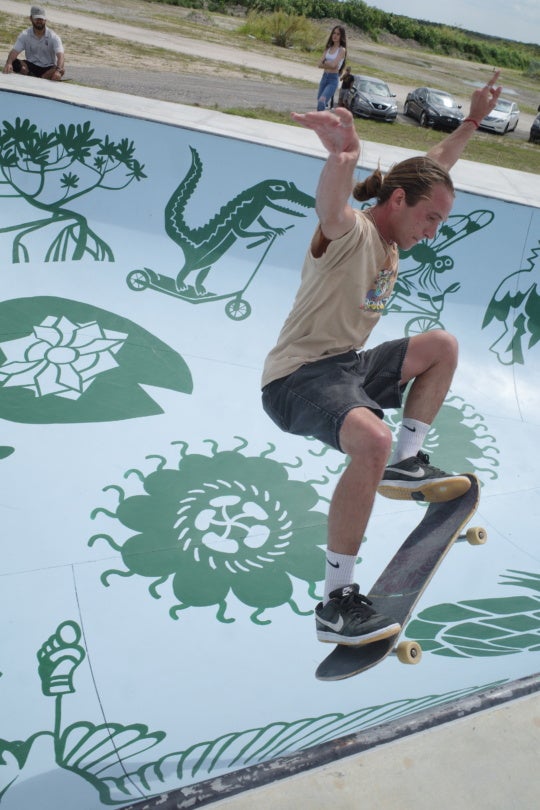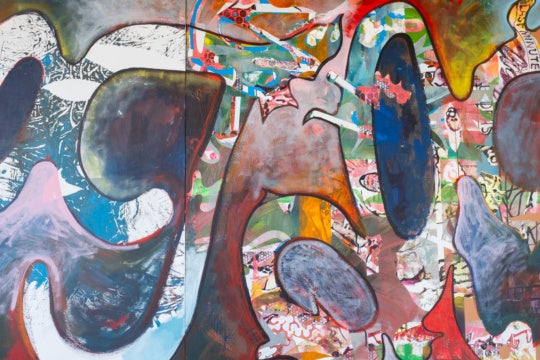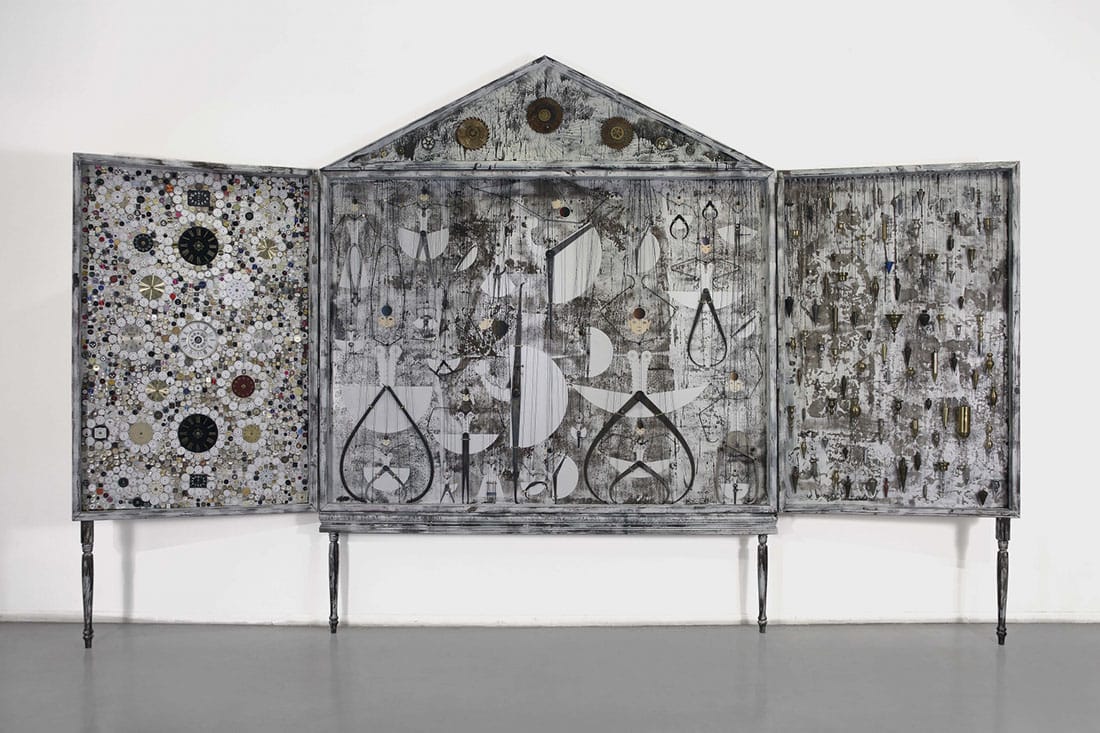
Beachcomber offers an expansive view of Cuban artist Carlos Estévez’s practice, one that highlights the artist’s ongoing interest in transforming everyday objects into playthings. The space feels as much like a laboratory as it does a gallery, containing fifty-four objects including ceramics, paintings, works on paper, and mixed media sculptures made between 2005 and 2020. For those seeking solace in art, Beachcomber is a return to the elemental pleasures of color, pattern, repetition, and harmony.
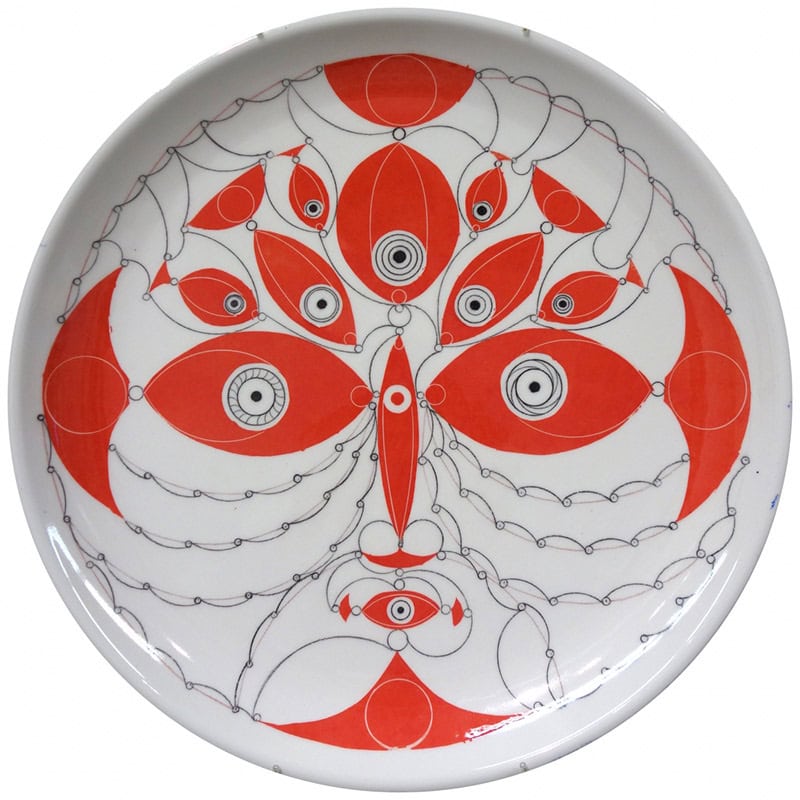
In the accompanying exhibition text, guest curator Jennifer Sudul Edwards—who also serves as chief curator at Charlotte’s Mint Museum—writes, “Like the surrealist painters and metaphysical poets before him, Carlos Estévez finds the potential in any object for experimentation and transcendence; he can craft even the most mundane item into a plaything.” The resulting presentation is like one big cabinet of curiosities; Estévez collects and organizes everyday items and imbues them with charm. Found objects—keys, doorknobs, pocket watches, dolls—are gathered in assemblages. One room is dedicated entirely to Estévez’s series of “telephone hybrids,” which recall Salvador Dalí’s Lobster Telephone from 1936. A series of otherworldly kites is suspended in one corner of the gallery, and I smile thinking of these bizarre faces dappling the sky.
There are notes of magic throughout the show. One pleasurable example: two eggs seemingly hovering in a delicate velvet lined wooden box. In another nearby box, a chess piece floats next to a butt plug. The title of the work, Amores Analógicos, or “Analogue Love,” suggest a pair of lovers. It’s a cheeky reminder that for surrealists, sex and humor (or, to put a finer point on it, funny sex) are constant sources of inspiration.
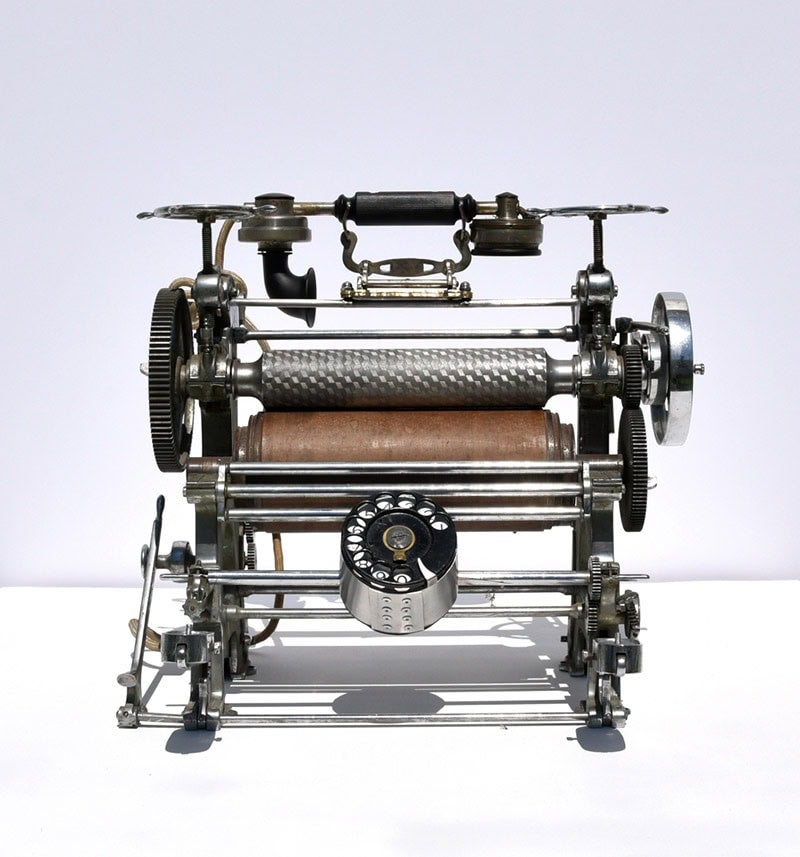
“The universe is a machine,” says Estévez, “and the idea is to understand how objects work not only from the mechanical perspective, but also from the metaphysical one.” While the artist undoubtedly takes a conceptual and philosophical approach to art-making, the works in Beachcomber aren’t didactic. Rather, it’s as if Estévez has done the cerebral work for our benefit, leaving us only play. Beachcomber is a salve, a source of visual pleasure and much needed respite from a world running short on simple delight.
Carlos Estévez’s solo exhibition Beachcomber is on view at LaCa Projects in Charlotte, North Carolina, through January 16, 2021.


